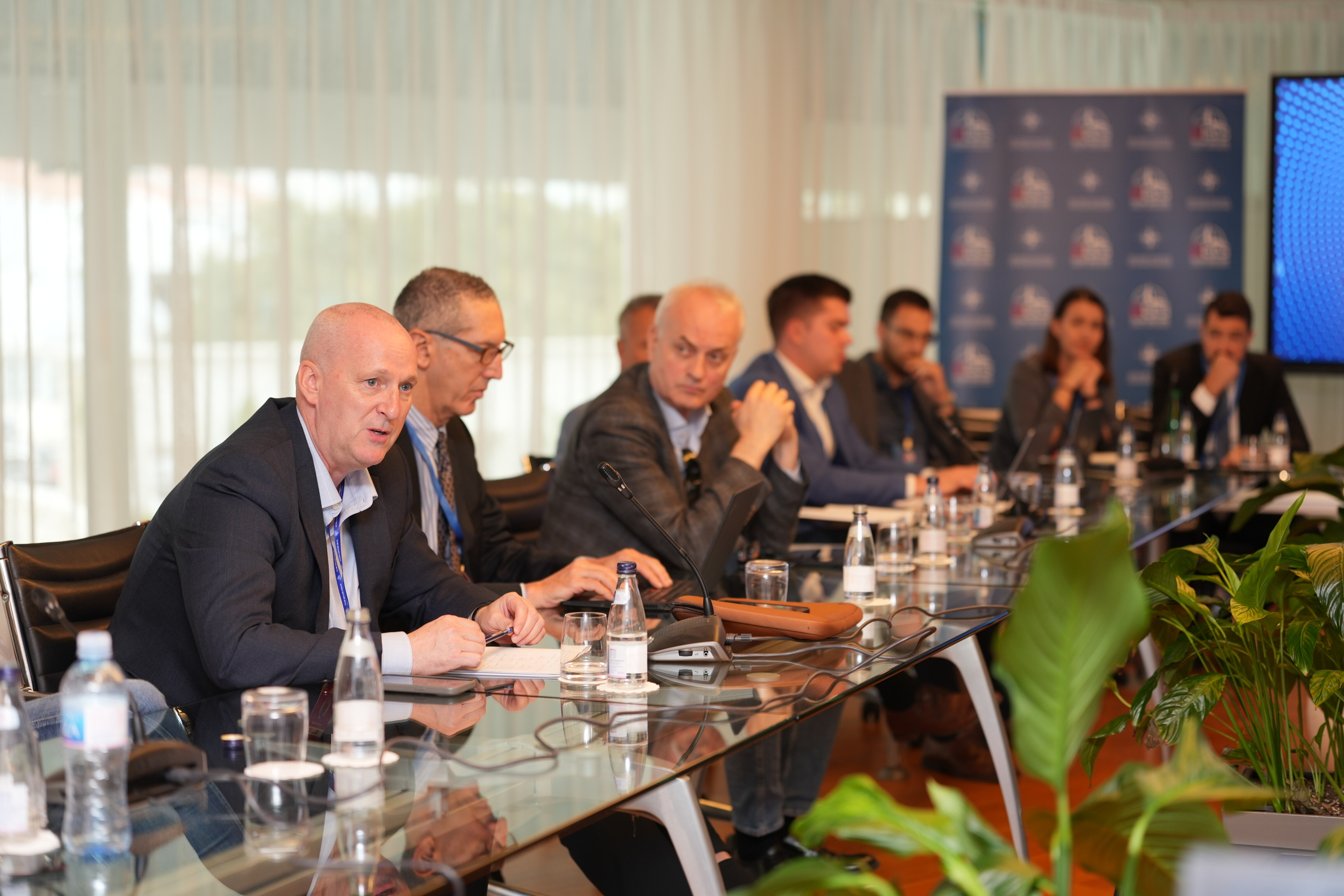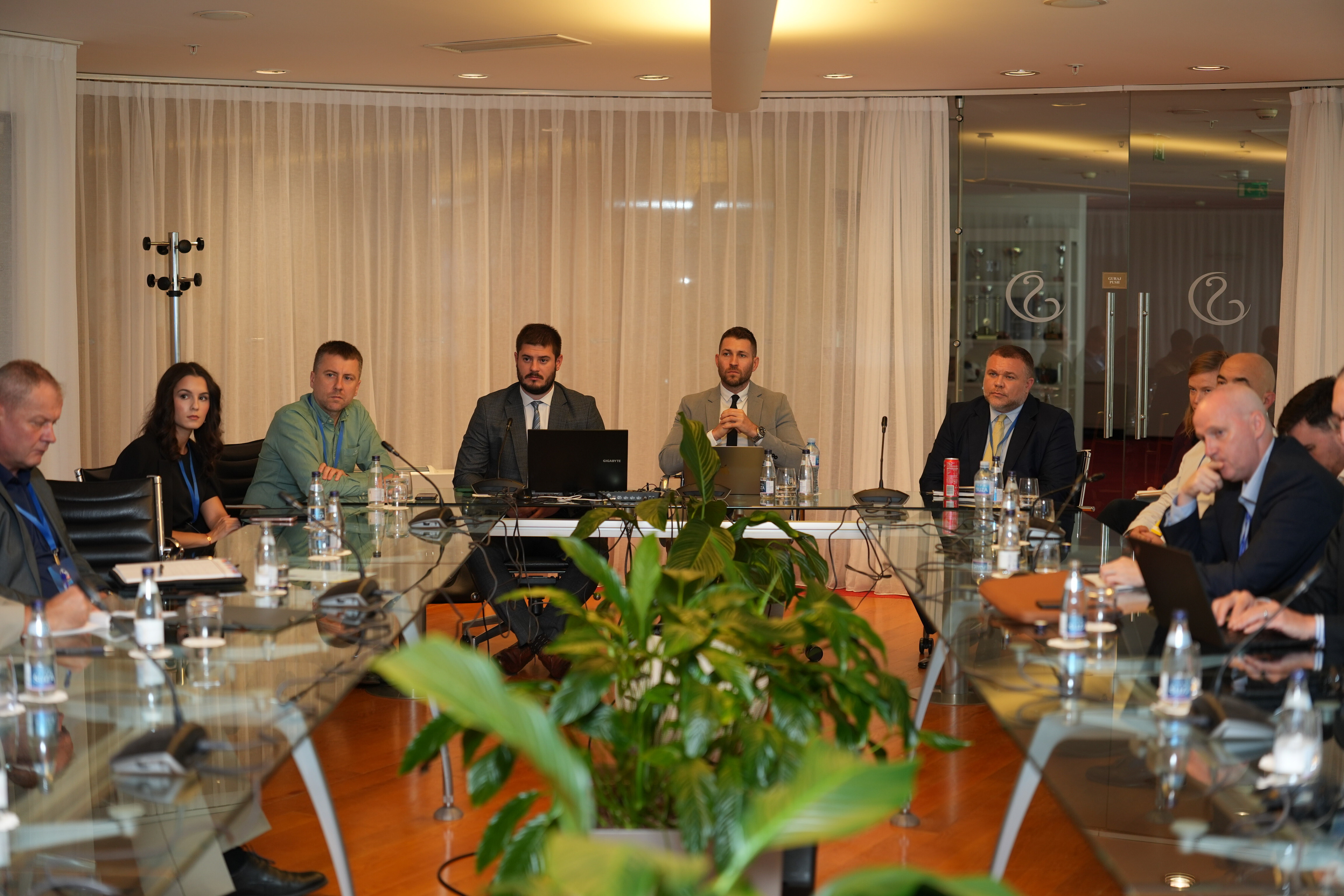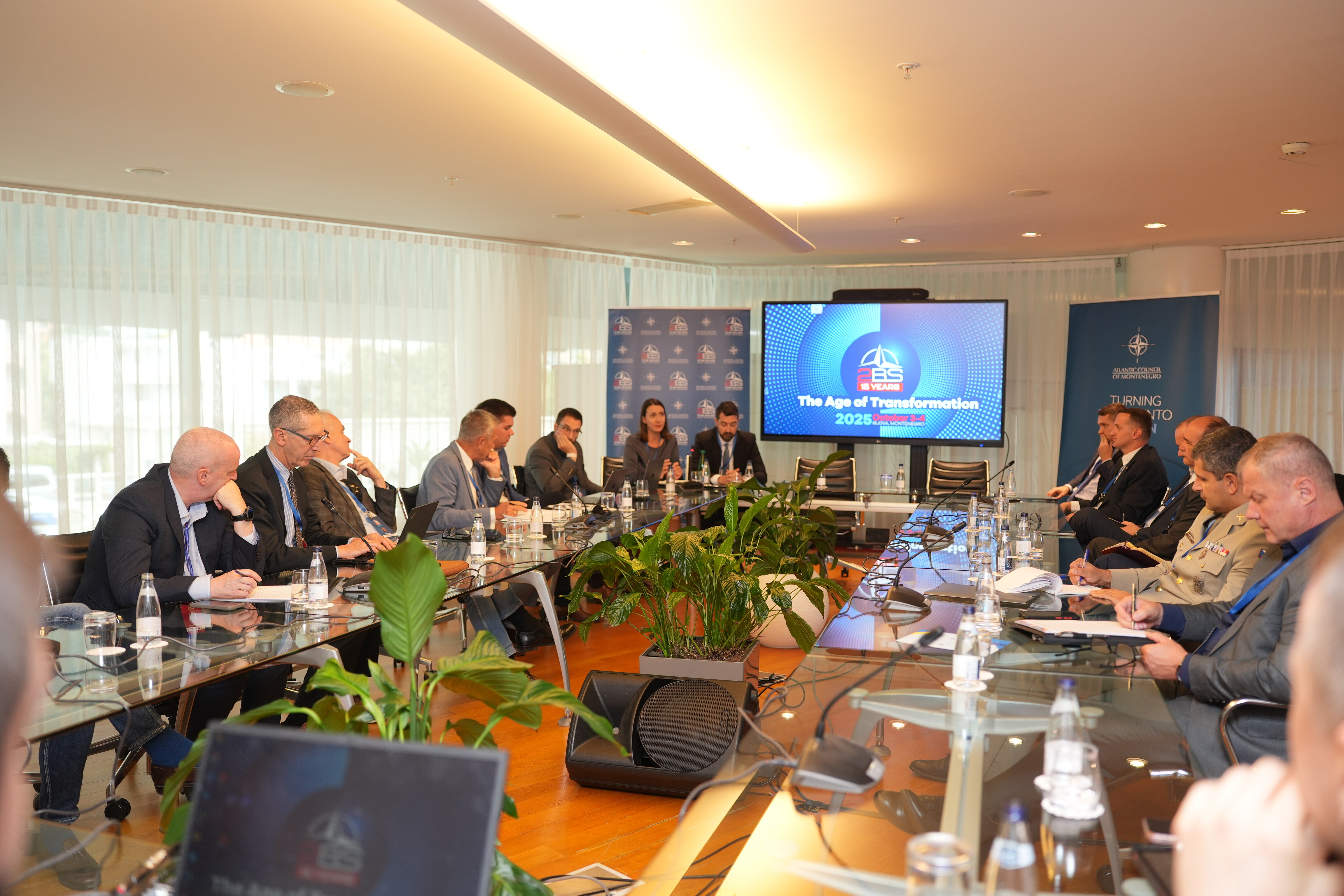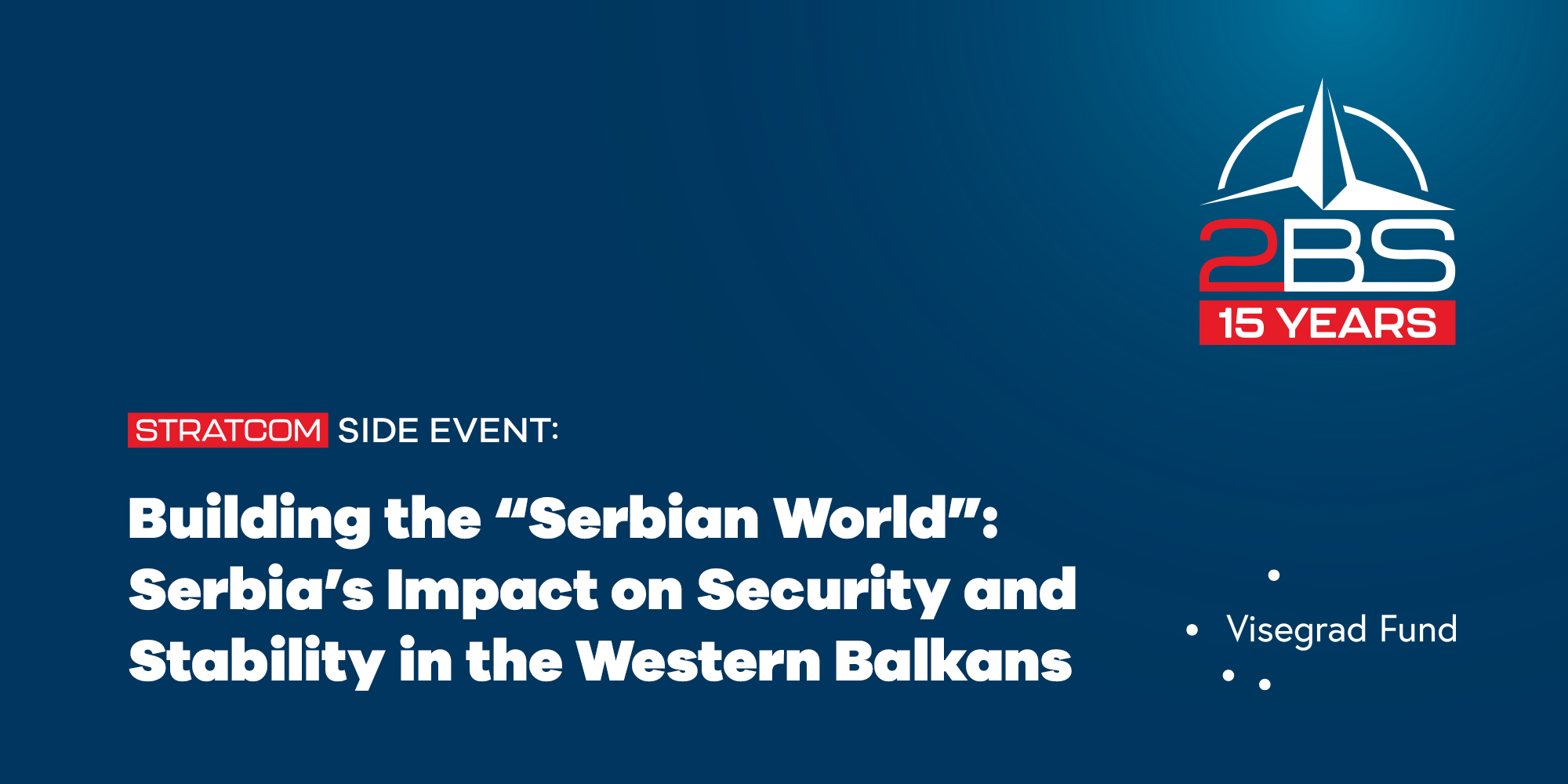The Digital Forensic Center of the Atlantic Council of Montenegro, in cooperation with AMO (Association for International Affairs, Prague), has organized a roundtable workshop focused on Serbian influence in the Western Balkans. The event was held on 4 October, on the margins of the 2BS Forum in Budva.
This event is part of the project Building the ‘Serbian World’: Serbia’s Impact on Security and Stability in the Western Balkans, supported by the International Visegrad Fund.
The roundtable discussion gathered local and regional experts, civil society representatives, journalists, municipal and political actors, and other relevant stakeholders.
During the discussion, it was highlighted that Serbia has multiple channels for exerting its influence in Montenegro. This includes political parties, media, far-right groups, and religious organizations. It was mentioned that in Montenegro, there are two parallel processes: the EU integration process and a process of integrating Montenegro into the “Serbian world”. The local actors in the country act as proxies for both Serbian and Russian influence. The speakers highlighted that the issues of Serbian influence revolts around identity and narratives that undermine montenegrin statehood, state symbols, language, history, and culture.
“This project is co-financed by the governments of Czechia, Hungary, Poland, and Slovakia through Visegrad Grants from the International Visegrad Fund. The mission of the fund is to advance ideas for sustainable regional cooperation in Central Europe.”




